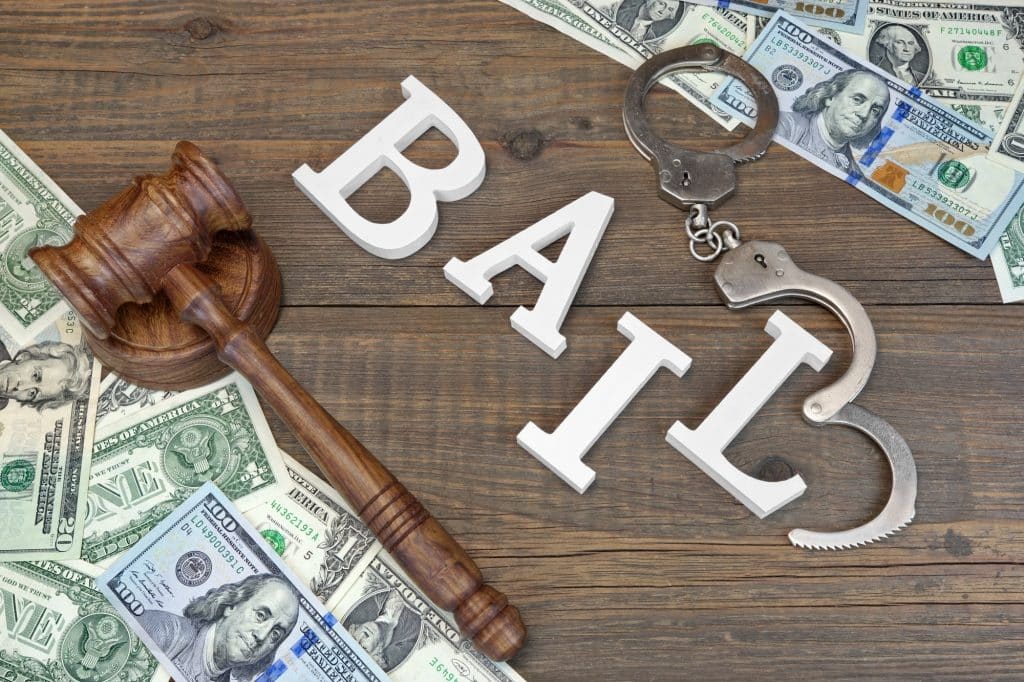Unlocking the Tricks of Bail Bonds: A Thorough Review
Navigating the elaborate world of Bail bonds can commonly seem like deciphering a cryptic code, with layers of complexity that stay concealed to lots of. From the numerous kinds of Bail bonds readily available to the crucial role of a co-signer, each element plays an important part in this legal process. As we untangle the internet of complexities surrounding Bail bonds, a more clear understanding arises, clarifying the systems that underpin this system. Join us as we delve much deeper into the nuanced aspects of Bail bonds, revealing the tricks that exist within and debunking this frequently nontransparent realm.
Recognizing Bail Bonds Process
When dealing with a lawful scenario that calls for uploading Bail, comprehending the Bail bonds process is essential to navigate the complexities of the judicial system efficiently. Bail bonds work as an economic assurance to the court that the defendant will certainly stand for all needed court appearances. This procedure includes a bond bondsman, who generally bills a non-refundable charge, usually around 10% of the complete Bail amount, to post the Bail in support of the accused.

In addition, collateral, such as residential or commercial property or assets, might be needed to secure the bail bond. Recognizing the terms and conditions of the bail bond arrangement is important to make sure compliance and stay clear of any added legal consequences. By understanding the Bail bonds process, individuals can make enlightened decisions when browsing the lawful system.
Types of Bail Bonds Available
Different kinds of Bail bonds are offered to people facing legal procedures, using alternatives tailored to details situations and demands. The most typical type is a guaranty bond, where a bondsman pays the full Bail quantity on part of the defendant in exchange for a non-refundable cost, usually around 10% of the overall Bail. Cash money bonds require the full Bail total up to be paid in cash before the offender can be launched. Property bonds, on the other hand, entail using important possessions like actual estate as collateral for the Bail quantity.
Furthermore, there are government Bail bonds for instances entailing government charges and migration bonds for individuals detained by Immigration and Traditions Enforcement (ICE) Recognizance, or signature bonds, are granted based upon the defendant's promise to appear in court without needing any type of repayment. Finally, transfer bonds are utilized when an accused is detained in a different state and needs to post Bail to be released. Understanding the various sorts of Bail bonds available can aid offenders browse the lawful process much more successfully.
Responsibilities of the Co-Signer

Furthermore, as a co-signer, you are answerable for guaranteeing that the offender follows any type of problems set by the court, such as going to therapy or avoiding specific tasks. It is essential to preserve open interaction with the offender to monitor their conformity and resolve any problems without delay. Ultimately, being a co-signer includes a substantial degree of trust fund and responsibility, as you are economically and legitimately tied to the defendant's Bail responsibilities.
Effects of Missing Bail

Skipping Bail can have severe lawful repercussions for both the co-signer and the offender involved in the bail bond contract. When an offender falls short to appear in court as needed after publishing Bail, the court typically provides a warrant for their apprehension. This not just exacerbates the defendant's legal problems yet additionally places the co-signer at risk.
For the accused, click this site avoiding Bail can cause added criminal costs, such as contempt of court or Bail jumping, which can result in fines, a cancellation of Bail opportunities, or also jail time. Moreover, the defendant may lose the Bail amount paid and any collateral offered.
Co-signers likewise deal with substantial effects if the offender misses Bail. As the co-signer assures the defendant's appearance in court and is economically liable for the complete Bail amount, they may be required to pay the whole Bail if the offender absconds. This can lead to financial strain, damaged credit report, and prospective lawful action against the co-signer.
Key Consider Bail Bond Authorization
Extra major offenses might lead to greater Bail amounts or even a rejection of Bail altogether. A history of previous convictions or a pattern of missing court dates can increase red flags and make it more challenging to safeguard a bail bond.
Furthermore, the ties the defendant has to the area can influence the authorization of a bail bond. The capability to pay the Bail quantity or offer collateral can enhance the opportunities of bail bond authorization. Eventually, a combination of these elements is weighed by the court when identifying whether to authorize a bail bond.
Final Thought
To conclude, comprehending the Bail bonds process, the types readily available, the duties of the co-signer, the consequences of skipping Bail, and the key factors in bail bond authorization are vital for navigating the lawful system. By familiarizing oneself with these facets, people can make educated decisions and make certain a smoother procedure when managing Bail bonds. It is essential to comply with the guidelines and requirements stated to stay clear of any kind of prospective complications.
The most usual type is a surety bond, where a bond bondsman pays the complete Bail amount on part of the accused in exchange for a non-refundable fee, normally around 10% of the total Bail. By authorizing the bail bond agreement, you are taking on the responsibility of assuring the full Bail quantity if the accused fails to show up in court - dayton bail bonds.Skipping Bail can have severe legal consequences for both the co-signer and the accused included in the bail bond agreement. The capability to pay the Bail quantity or offer security can you could try here increase the possibilities of bail bond authorization.In final thought, recognizing the Bail bonds process, the kinds readily available, the obligations of the co-signer, the effects of missing Bail, and the essential variables in bail bond approval are vital from this source for browsing the legal system